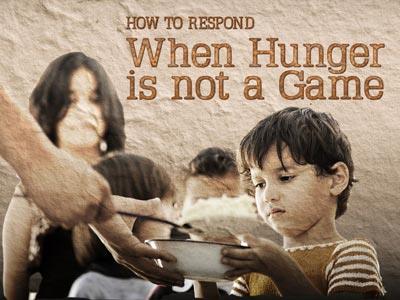-
"jesus' Theology Of Abundance"
Contributed by Ken Sauer on Aug 2, 2023 (message contributor)
Summary: A sermon about asking God to change our perspective on generosity.
“Jesus’ Theology of Abundance”
Matthew 14:13-21
This is a remarkable passage of Scripture, so remarkable that it is the only miracle story that is found in all four Gospels.
The feeding of the 5,000 (which was probably closer to 15-20,000 because they only counted the men) takes place immediately after Jesus and the disciples hear the devastating news of the brutal murder of their dear friend John the Baptist.
Understandably, Jesus and the disciples tried to get away from the crowds for a while.
They were grief-stricken.
It turns out that they couldn’t get away.
And even in His grief, Jesus has compassion on the multitudes that followed Him and spent the day healing the sick.
As it got late in the day, the disciples start getting worried, “This is a remote place,” they tell Jesus, “Send the crowds away so that they can go to the villages and buy themselves some food.”
But Jesus says, “You feed them.”
And the disciples must have looked absolutely flabbergasted.
They have nothing.
No food.
No reserves.
They stare out at the hungry mass of people and it’s starting to look more and more like a hungry mob!
And you know, it would have been hard for this mass of people to go into the villages and buy food for themselves anyway.
For one thing, most of these people were poor, sick, and homeless.
Homelessness and extreme poverty were at crisis levels in Jesus’ day.
The movement of wealth out of the poor regions and into the wealthy ones had decimated the rural areas where Jesus did most of His ministry.
Jesus was preaching, teaching, healing, feeding, and leading a host of very poor and marginalized folks.
This is something that is easy to forget as we read the Scriptures.
Most of the people who came to Christ were in absolutely desperate circumstances.
And in today’s passage the disciples felt desperate as well, “We have nothing—only five loaves and two fish,” they tell Jesus.
Jesus responds by saying, basically, “Bring your nothing to me.”
He blesses the fish and bread and distributes the food to the masses.
We are told that “they all ate and were satisfied, and the disciples picked up the twelve basketfuls of broken pieces that were left over.”
The disciples had been thinking out of a theology of scarcity which says, “We don’t have enough to go around.
We can’t feed all of these people with our meager resources.”
It’s somewhat similar to the comments we hear so often today, as if we who live in the richest country in the world are so poor that we can’t afford to care for the poorest people around us.
Unlike the disciples, Jesus has a theology of abundance: that is, share what you’ve got because ultimately, God provides everything anyway and we can trust Him.
Sharing is at the core of what Christianity is all about.
There is an abundance in our nation, but we need to come to it, not with an individualized approach of “How much do I have?” but rather with the communal dimension of “How do we all thrive together?”
Jesus’ message of joy, hope, peace, and love means that there is enough to go around when it is broken, blessed and shared.
Here is a challenging thought:
God knows no limitation.
After all, out of nothing God created the entire universe.
The Kingdom of God is about abundance, not scarcity.
My refrigerator doesn’t always have to be full for Jesus to take what I have and feed others.
Today’s story isn’t an invitation to be wasteful or to live beyond our limits.
Even after the experience of this miracle of abundance the disciples gather up and are good stewards of the leftovers.
A good question to explore, though, is why so many of us buy into the myth that there isn’t enough to go around.
I’m guilty of this.
I often live out of a vision of scarcity with my own bank account, time, and other resources.
But, with this story Jesus challenges me to re-imagine my life and live into a theology of God’s abundance.
In the kingdom of God, we don’t have to hoard—there is always enough supply to meet the demand.
The scarcity mindset is deeply embedded in our culture, and its messages impact every church in some way.
The myth of scarcity says that there is not enough food, water, shelter, space, money, time, and love—you name it—to go around so we often hold on to what we have.
It leads to hoarding so that if we need it in the future it will be there, without a thought about how these decisions affect others who need it today.
The Bible, on the other hand, is a story of abundance.
It dares us to try out generosity and risk.

 Sermon Central
Sermon Central



